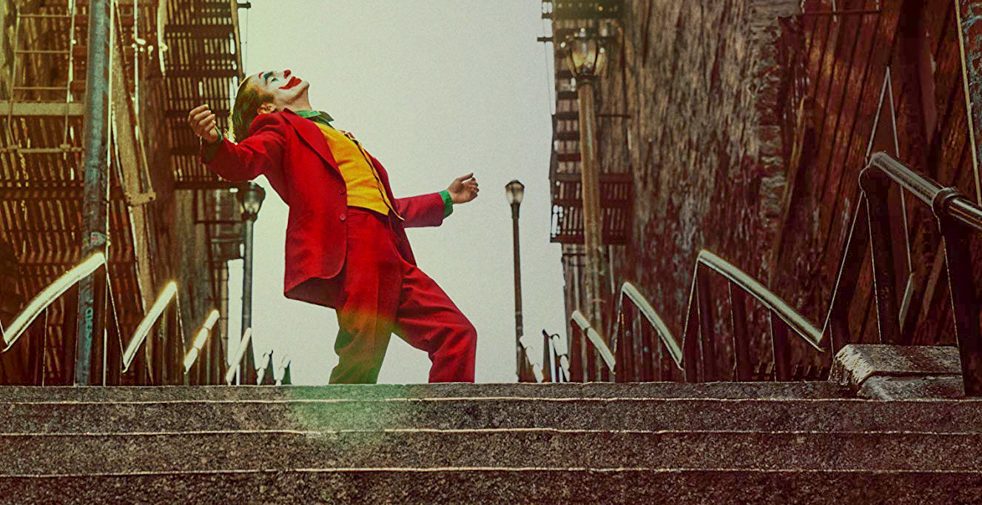After “Joker” took home the biggest prize of the Venice Film Festival, a pandemonium of anxiety and debate erupted across the internet. Although the hysteria might be overstated, the grounds for concern are valid. Since a gunman likened himself to the famed Batman villain in 2012, numerous instances of mass violence have occurred. The worries suggest that the latest comic-book adaptation might spur violence or enable toxic behavior. Intensifying the discourse even further, the press junket has pitted writer-director Todd Phillips (“Old School” and “The Hangover”) against
“woke culture.”
What complicates the conversation the most, however, is the fact that “Joker” is a pretty effective psychological drama, as well as one of the most stylish and best acted movies of the year. Where lesser films can slip by the public consciousness unexamined and undissected, the merits of Phillips’s work invite debate around
its morality.
In a sea of think-pieces and animated dialogue, only one thing is certain about the latest superhero-inspired release: “Joker” will not change anyone’s preconceived notions. The origin story for the iconic villain proves spectacular for fans of the Batman universe, but problematic and flawed for anyone with moral apprehensions.
Co-written by Scott Silver (“The Fighter”), the adaptation reimagines the titular character as Arthur Fleck — a poor, downtrodden clown with an unspecified mental illness prompting spontaneous laughter — played by Joaquin Phoenix (“Her,” “Gladiator” and “The Master”). The plot presents a series of misfortunes that answer the usual origin question, suggesting that the villain is a product of the environment that molds him. An abusive childhood, a crime-laden city and classist frustrations prompt the character to put on the paint and confront the world that scorns him.
Thus, analogies to Martin Scorsese’s similarly minded classics “Taxi Driver” and “The King of Comedy” — the latter having explicit allusions in Phillips’s film — prove apt, but only to a certain extent. “Joker” lacks the authenticity of the former as well as the satire of the latter. Criticisms of American society and culture feel flat and undeveloped despite inklings of truth. Simply put: “Joker” is not as profound as it purports to be.
Yet, the psychological drama effectively subverts some constraints of the comic-book genre. The art direction pops with bright costumes to offset the dilapidated setting, captured with striking, grainy cinematography. Action, when it actually occurs, never appears flashy, but rather with a shocking realism that reflects how repulsive the violence is. The score and soundtrack heighten the imagery with eeriness and intensity.
The greatest feat of “Joker,” however is the magnificent, committed performance from Joaquin Phoenix. For those unfamiliar with his filmography, the lead actor might be the best working actor since Daniel Day-Lewis retired a couple years back. Here, Phoenix presents a deep-rooted pain behind every glance and smile. Laughs arrive purposefully at the exactly incorrect times and moments, shifting viewers uncomfortably in their seats. When he inevitably erupts, his ferocity provokes genuine fear. The physicality of the acting sets it apart, as the ungainly nature of Phoenix’s shrinking frame morphs into a foreboding prance and pounce over the course of the narrative.
Despite being so clearly well-produced and acted, “Joker” struggles to shake debates of its morality. Although the movie definitely does not glamorize violence nor condone it, the titular character becomes not only the hero in his own mind, but also the hero of the film’s story.
Scores of civilians rally behind the symbol of Joker as a combatant against classism, even though the mob mentality is the antithesis of the film’s implicit and explicit messaging. The resulting riots in “Joker” are, thus, no more emblematic of America’s cultural climate than those of “The Purge,” which is to say not representative in the slightest.
Moreover, Phillips claims his movie is a call for self-reflection during interviews, but nothing depicted in the film warrants internal consideration on the part of the viewer. Maybe the Arthur Flecks of the world need more care and compassion in their lives. Then again, Arthur Fleck does not exactly exude those
qualities himself.
Returning to the controversy, few people will view “Joker” and have their preconceived opinions altered. Arthur’s journey may embolden toxic behavior in those who see themselves in it. Likewise, any concerned viewer will not be dissuaded from his or her moral stance on the film.
“Joker” is about as well-made as a comic-book movie can be, but it fails in that it proves hopelessly unable to win over anyone who was not already interested in the Batman series and the film itself.
